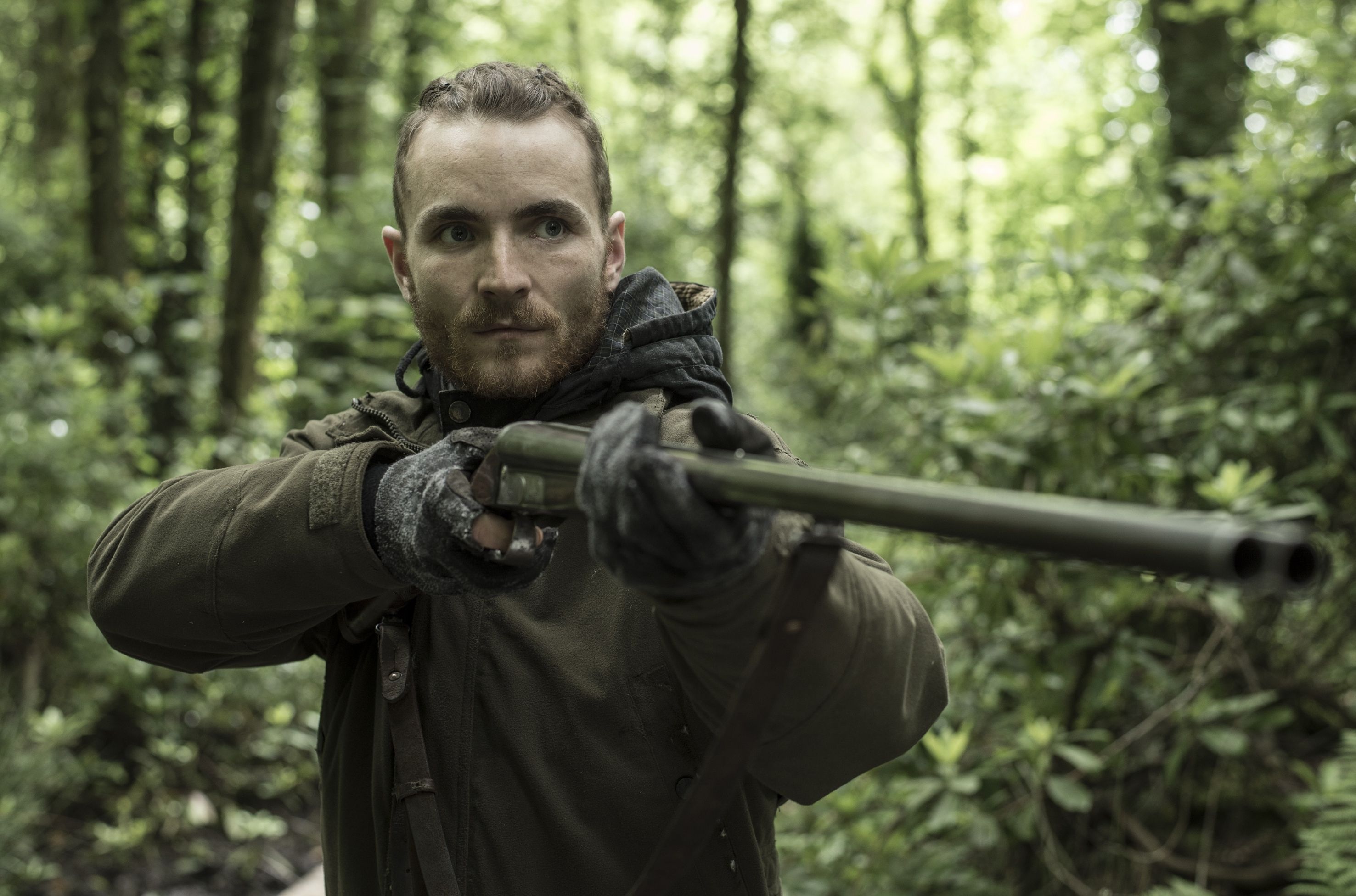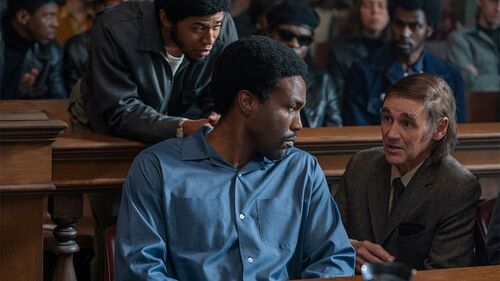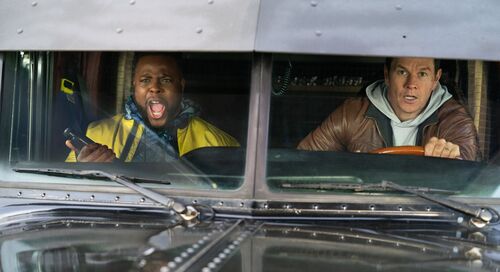
The Survivalist
 The eight year-old me’s vision of the future featured flying cars, super-fast food and service robots and more – think the Jetsons or worst case scenario, 1995’s Judge Dredd. Fast forwards some 16 years later and I don't put it beyond humanity to screw up the world. A desolate punishing future akin to Mad Max or The Road is becoming more plausible argument as the years go by.
The eight year-old me’s vision of the future featured flying cars, super-fast food and service robots and more – think the Jetsons or worst case scenario, 1995’s Judge Dredd. Fast forwards some 16 years later and I don't put it beyond humanity to screw up the world. A desolate punishing future akin to Mad Max or The Road is becoming more plausible argument as the years go by.
Writer/director Stephen Fingleton’s The Survivalist looks to confirm my bright hopes for humanity with his pensive take on a depleted dystopia barely clinging to hunting and gathering status. Set in a time that could be two years from now or 20, we are given a reminder of our dependence of fossil fuels. The film opens with animated red and blue lines, one representing population and the other oil production, chillingly outlining humanity’s rise with the oil boom and fall when oil production begins to fall. The drop in population is steep, almost vertical on the chart. Definitely a parable in there.
The first sign of life is from Fingleton’s unnamed central character played by Martin McCann. He is dragging a corpse for burial on through a thriving woodland with rich dark soil and glistening leaves from some rain. Nature appears to be doing just fine with the drop in oil production. The assumption is our unnamed character (we'll call him the Survialist) took this life, the assumption is violence is a pretty handy currency here in this time of starvation. After burying the body, the survivalist proceeds to set and check on some booby traps he has rigged to mark his territory. Trespassers beware lest you become compost for the Survivalist’s farm.
There is nothing particularly visually striking about the opening but Fingleton’s camera glances casually from detail to detail to emphasise what appears to be his central character’s process. A body being covered with dirt for the unique brand of composting, the rigging of a rusted snare, the inspection of some trip wire all in the name of solitude and survival. It takes a while to see our central character’s face as he his shrouded in a make shift raincoat as he makes his way to his shack. When we do see his face, it is followed by him ripping a page out of the holy bible belonging to the man he just killed. Man no longer needs God but he does need fire and warmth.
A few days later, two more trespassers, of the female variety, come our eponymous characters way, a mother and daughter; Kathryn (Olwen Fouere) and Milja (Mia Goth). They offer our lone wolf seeds in exchange for food and shelter but he is having one of it. Milja's body is then offered as barter for sustenance. They had his curiosity, then they had his attention. The trade is accepted and we get a semblance of the primeval beings man has been forced to become. Aside from the leaning toward subsistence embodied McCann’s character, there is hint at a compulsion to satisfy the need for sex. There is a quite viscerally repulsive but interesting tie in of the two points that I guess I shouldn't spoil.
The exchange between the two parties is also a trade off in security and vulnerability. The tension and suspicion in the air is contagious. It is an extremely harsh world but our director tries to undercut the apprehension and tension with a sentiment as basic trust. Consider the scene that sees Milja in a position with a blade to our central characters throat. She is only trying to help him shave but there is every reason to believe blood instead of beard hairs will fall to the ground but it doesn’t. The acceptance of this assistance is a big deal for our loner. It also helps that Milja had a shotgun piercing her midsection but the gap between the two lessens. The prior sex becomes less of a transaction and something more meaningful, a conduit for rare intimacy.
The dynamic between the three develops as characters appear to be more comfortable with each other but there is no reason to believe the potential for conflict within the three has completely died down. Such is the world. The Survivalist, we know for sure, has done horrible things to have survived this long. For Milja and Kathryn, it is kind of implied. The ill intent abounds and the suspicion keeps audiences on their toes. The external threat of raiders, who definitely will not be stopping to offer trades, becomes more apparent as the film progresses keeping things more interesting for us and providing a more black-and-white source of conflict.
Fingleton unsurprisingly adopts a minimalist approach to the film with works to its benefit on many levels. It certainly aligns with the isolation of the central character and canvas of primal subsistence. There is very little dialogue as the visuals do well to move this story and this minimalism extends to how much we actually learn about the characters. Life here is pretty much lived day-to-day. No time to think about the past and dwelling on the future is a luxury the characters can’t afford. Two of our core cast however find themselves in positions were the past and future become pertinent and they immediately assume an semblance of humanity we can relate to.
The beats of humanism Fingleton hits make this film successful and give it substance. The subtext is great and screenplay crafts some interesting character moments but Fingleton ultimately puts us in a position where finding ourselves rooting for humanity and that is somewhat rare for a film of this nature. It is a rough, unforgiving violent world but our director ultimately makes it a point to remind us of some of the simple things that make us human, some of the things that push us to build a better world.


